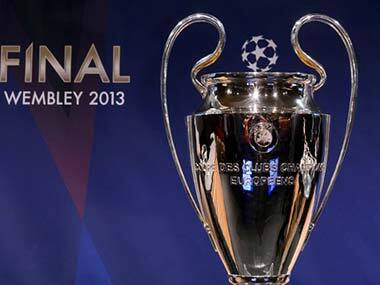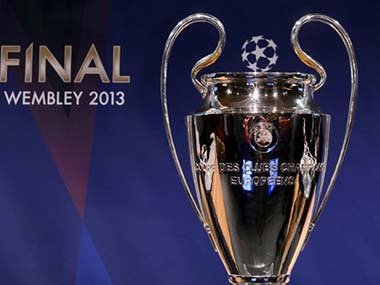If, like the majority of football fans, you’ll be a neutral during this weekend’s all-German Champions League final at Wembley, then fear not. You still have a stake in the game. As fans of Borussia Dortmund and Bayern Munich descend on London to watch their teams, there are also plenty around the world who haven’t picked a side. There is a lot to admire about both these great German clubs, and here’s how to decide. Are you a sports hipster? Do you support the underdog? Will you cheer for whoever faces the Chennai Super Kings in the IPL Final? If so, the yellow and black of Borussia Dortmund is probably for you. Though the finish to their semi-final clash with the mighty Real Madrid was nervy, Dortmund were categorically the better side over two legs and are deserving finalists. They are a far smaller club than Bayern Munich, the traditional power-house of German football. Bayern made revenues of €368.4m this year (with a whopping €201.6m coming from big sponsors like Audi, Adidas and Allianz) while Dortmund’s €189.1m is modest in comparison. In spite of the disparity in resources, Dortmund won the German league title the last two seasons in a row and memorably thrashed Bayern 5-2 in last year’s German Cup final. Dortmund’s style of football and their incredible fans have endeared them to fans around the world, much like Spain’s Athletic Bilbao did last season. The 80,000-seater Westfalenstadion is probably the coolest stadium in Europe – it boasts the largest single terrace in the world which holds 25,000 people itself, more than many full-seater stadiums. There is a more substantial reason to support Dortmund though. Since they won the domestic league, the Bundesliga, in 2011, they have had their best players poached by bigger clubs and still remained competitive. Coach Jurgen Klopp’s strength has been replacing core players with even better ones and not being afraid to bet big on talent. Real Madrid took central midfielder Nuri Şahin in 2011 and Klopp promoted promising youngster İlkay Gündoğan. Manchester United bought playmaker Shinji Kagawa in 2012 and Klopp spent €17.1 million – big money for a club of Dortmund’s size – on Marco Reus. This season, Bayern have nicked their star attacking midfielder Mario Götze for a German record €37m. Striker Robert Lewandowski is also likely to be picked up by a traditional European superclub and, though Götze will miss the final, this may be the last time we’ll see Lewandowski in the Dortmund shirt. Support this Borussia Dortmund team because we simply don’t know how long Klopp can keep them at the top level after losing their star players yet again. [caption id=“attachment_812291” align=“alignleft” width=“380”]  Champions League Trophy. AFP[/caption] Maybe you’re someone who admires the top dog. Do you like Apple and Starbucks and Tiger Woods? Bayern Munich is probably for you. They epitomise the sleek, efficient, well oiled motor engines that southern Germany is famous for. Called FC Hollywood in Germany, they don’t really like being 2nd. They broke a staggering 24 different domestic records this season, including most points (25 ahead of 2nd place Dortmund), most wins (29 wins, four draws and one loss) and earliest league victory. They won the Bundesliga with 10 games to spare and have since focused their attention on the Champions League. They should have won it last season; but at home to Chelsea, they choked in the final after dominating. This season, they’ve won all four quarter final and semi final games (against the Italian champions Juventus and Spanish champions Barcelona) with a total aggregate margin of 11-0. Bayern Munich are winners. Their style is to steam-roll their opponents with pace and power. Arjen Robben and Franck Ribéry, their two explosive wingers are buttressed by powerful central midfielders like Toni Kroos and Javi Martinez. Up front, Mario Gómez and Mario Mandžukić bully defenders in the box. But what’s forgotten about FC Hollywood is that the core of their team are home-grown players from their junior team: Philipp Lahm, Bastian Schweinsteiger, Thomas Müller and Toni Kroos are all academy products and now stars for the German national team. So you can choose a team. Or you can celebrate what’s really won here: German football. Germany has created a model for sport that should be replicated everywhere. The ‘51% rule’ means that fans always own the controlling stake in their team, not Russian oligarchs or Arab Sheikhs (or any of the dubious franchise owners like in the IPL). This means that clubs are for the fans, by the fans and this means a match-day experience unlike anything in Britain, Spain or Italy. Stadiums are full every week, with working class fans who are the real backbone of the club. Grounds are safe for families and contain standing and drinking sections for hard core fans. Ticket prices are far cheaper than in the UK and the atmosphere at Bundesliga matches is electric. Yes, there have been problems with hooligans and pyrotechnics, but games are well policed and offenders by and large, face justice. Since Germany’s acrimonious exit from Euro 2000, authorities have pumped some €20m a year into grass roots football and the stylish nature of their club and national teams show that it has paid off – not just for Bayern or Dortmund. On both occasions the two sides met this season, the games have ended 1-1. But those were in a league campaign that wasn’t really a competition as much as much as a procession. Come Saturday night (technically 12:15 AM Sunday morning in India) we can expect breakneck action. Bayern want to win a final after losing in 2010 and 2012. Dortmund want to take what’s probably a once-in-a-generation chance to win the big one before their best assets are carved up and sold off like a private equity deal. We can expect to see the products of great German planning finally delivering on the world stage. This weekend, cheer for football.
As fans of Borussia Dortmund and Bayern Munich descend on London to watch their teams, there are also plenty around the world who haven’t picked a side. Here’s how to decide.
Advertisement
End of Article


)

)
)
)
)
)
)
)
)



